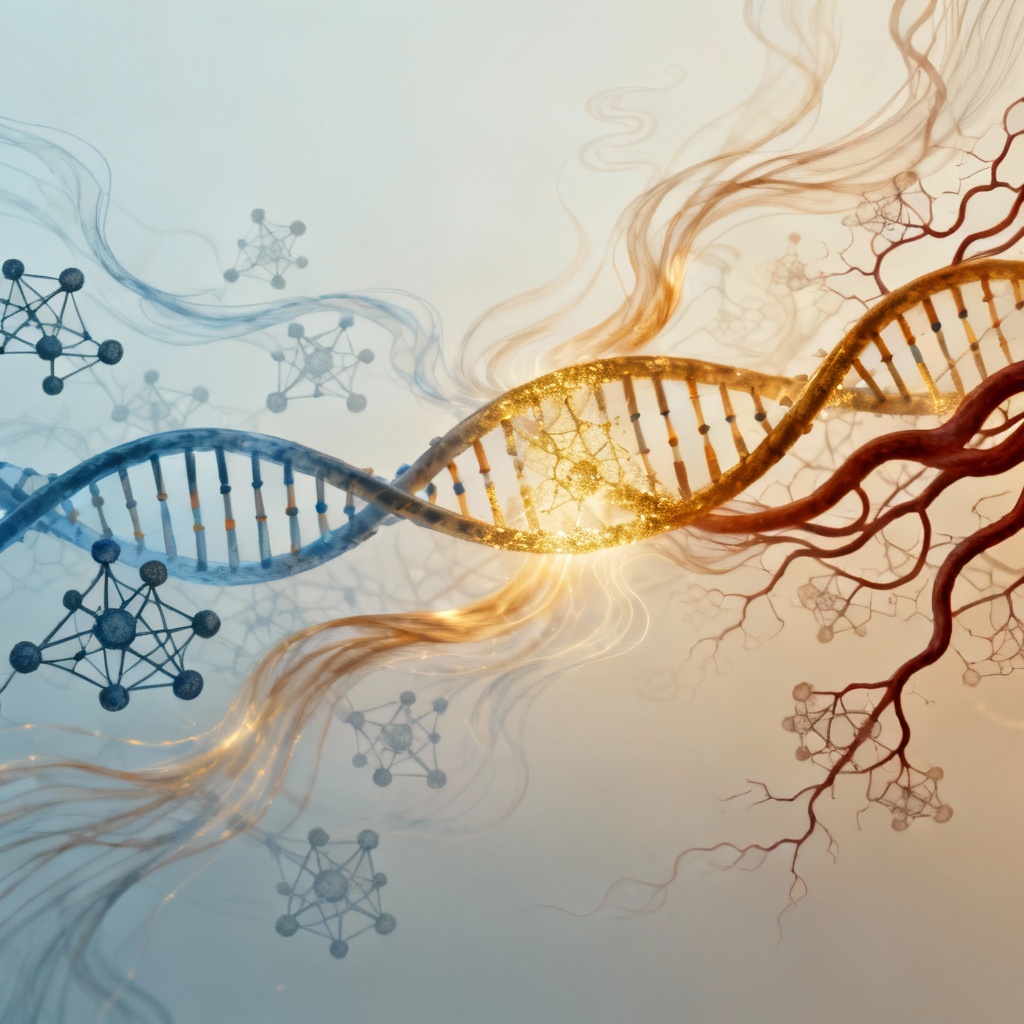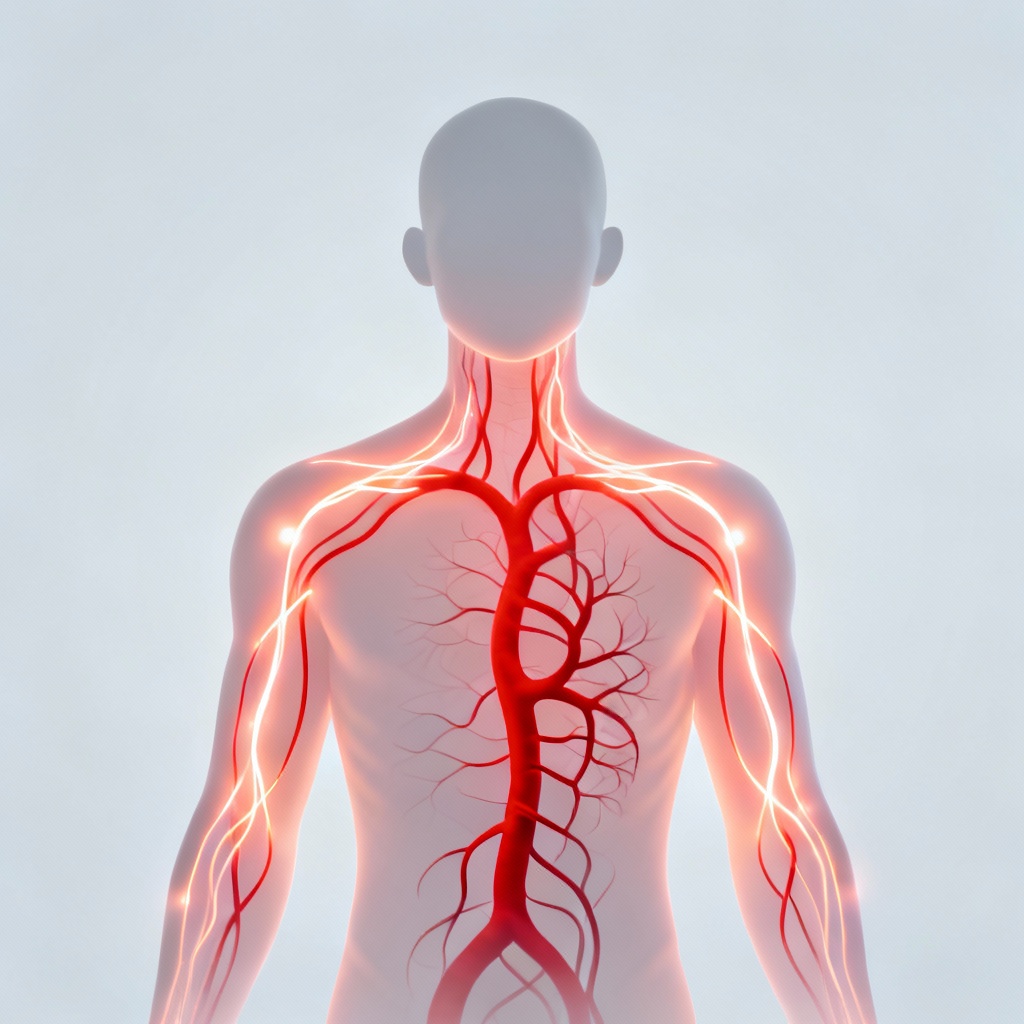Understanding the core concepts of Qi and Blood in Traditional Chinese Medicine can feel daunting for many Westerners. Fortunately, we can bridge this gap using modern scientific insights and relatable analogies. Let’s explore a Western Understanding of Qi and Blood.
Demystify Ancient Wisdom: Grasp Core Concepts

Amazingly Simple: A Western Understanding of Qi and Blood
Within a Western medical framework, ‘Qi’ broadly represents your body’s vital energy system. Think of it as your body’s operating power, much like a phone battery keeping everything running smoothly. This essential life force drives all physiological functions, ensuring optimal health and well-being. For example, Lung Qi influences your respiratory system’s oxygen exchange efficiency. Heart Qi supports your cardiovascular system’s crucial pumping function and overall circulation. Spleen Qi relates to your digestive system’s metabolic processing capabilities. Meanwhile, Kidney Qi embodies your endocrine system and fundamental metabolic rate, impacting energy and vitality. When TCM mentions ‘Qi Deficiency,’ it’s similar to insufficient cellular energy production or mitochondrial dysfunction. This might also manifest as an imbalance in your autonomic nervous system, affecting various bodily controls. You can explore more about this vital force at /tcm-basics/qi-blood/.
Boost Your Vitality: Understand Your Body’s Fuel
TCM’s ‘Blood’ extends beyond mere red fluid circulating in your veins; it encompasses your entire nutritional supply. This concept includes your actual blood, vital nutrients, oxygen, and hormones it carries throughout your system. It also covers the overall functionality of your circulatory network, ensuring all parts of your body receive what they need. A ‘Blood Deficiency’ in TCM parallels conditions like anemia, general malnutrition, or impaired microcirculation in Western terms. When TCM practitioners refer to ‘Blood Stasis,’ it signifies a blockage, much like a traffic jam in your body’s circulation. This can manifest as blood clots, arterial hardening, or poor overall blood flow, causing discomfort and limiting function.
Nourish Your System: Optimize Internal Transport
The simplest way to grasp these interconnected ideas is to picture your body as a well-oiled machine, perhaps even a finely tuned car. Qi acts like the gasoline providing essential power and momentum, keeping your body’s engine running. Blood, on the other hand, functions as the engine oil, lubricating and nourishing all your critical components. If your car runs low on gas (Qi deficiency), it will simply lack the power to move efficiently. Similarly, insufficient engine oil (Blood deficiency) means parts wear down quickly, leading to various health issues. Thinking of your body as a vibrant city offers another great analogy. Qi is like the electricity grid, delivering energy and information throughout the entire metropolis. Blood functions as the complex transportation system, moving vital supplies and essential nutrients to every neighborhood. A power outage (Qi stagnation) disrupts city operations, causing widespread functional impairment and noticeable slowdowns. Traffic congestion (Blood stasis) prevents vital supplies from reaching their destinations, impacting the health and vitality of the whole city. These parallels highlight the dynamic interplay between these fundamental life forces.
Visualize Wellness: Connect to Daily Life

Modern research increasingly validates the physiological states described by Traditional Chinese Medicine, especially regarding Qi and Blood. Objective markers can now detect these subtle energetic and circulatory conditions within the body. For instance, heart rate variability effectively reflects your body’s Qi regulatory functions and overall adaptability (PMID: 28830843). Rheology tests, which study blood flow properties, accurately demonstrate your Blood’s circulatory status and microcirculation efficiency (PMID: 29511116). Furthermore, immune indicators often correspond directly to TCM’s concept of ‘Zheng Qi’ or ‘Upright Qi,’ representing your body’s inherent defense mechanisms (PMID: 29881857). Many forward-thinking Western athletes and health experts are now recognizing the profound benefits. They understand that balancing Qi and Blood significantly improves athletic performance and overall well-being. This isn’t just ancient folklore; it’s a sophisticated, holistic system for managing your life’s vital energy. For more general insights into staying healthy, visit /healthy-living/.
Measure Your Progress: See Tangible Results
For Westerners seeking practical insights, conceptualize Qi and Blood simply as your body’s comprehensive ‘life energy and nutritional circulation system.’ This crucial interplay underpins all vitality. By proactively regulating this intricate system through practices like acupuncture, herbal medicine, dietary therapy, and mindful movement, you can actively maintain robust health. These time-tested methods ultimately elevate your overall quality of life and boost longevity. This holistic approach represents the profound essence of millennia-old TCM wisdom, offering a practical framework for a balanced life. A deeper understanding of these foundational principles provides immense benefits for your long-term health. For a comprehensive overview, check out /tcm-basics/. Achieving a better Western Understanding of Qi and Blood, along with its energetic flows and nourishing aspects, can profoundly improve your daily vitality and well-being, fostering a greater sense of health and balance.
Master Your Health: Embrace Holistic Balance
References
- (PMID: 28830843) Qigong’s impact on heart rate variability: A study on meditation practices.
- (PMID: 29511116) Understanding blood rheology in TCM’s blood stasis syndrome.
- (PMID: 29881857) The correlation between TCM’s ‘Zheng Qi’ and immune function.
**Ready to feel the difference? Try this 3-second self-test and 30-second self-rescue!**
- If you constantly feel tired and catch colds easily -> immediately try a 30-second brisk walk or a warm ginger tea to boost your Qi!
- If you notice pale skin, feel dizzy often, or have brittle nails -> immediately nourish your Blood with a handful of dark leafy greens or a short, restful nap.
- If you experience irritability, bloating, or stiffness -> immediately try 3 deep diaphragmatic breaths or gently massage your temples to release Qi stagnation.
Medical Disclaimer:This article is for educational use only and is not a substitute for professional medical advice.